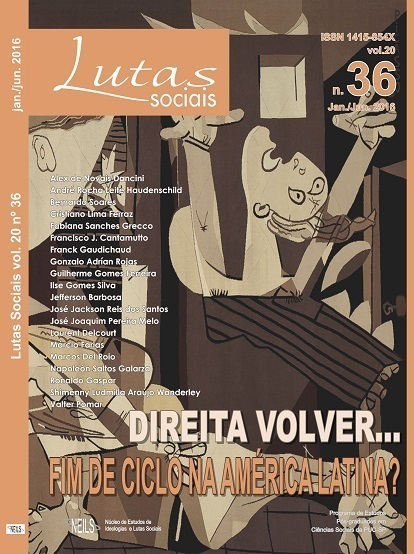Capitalismo e revolução em Caio Prado Jr.
DOI:
https://doi.org/10.23925/ls.v20i36.31843Palabras clave:
sistema colonial, capitalismo, revolução brasileira.Resumen
Este artigo apenas oferece alguns indícios para explicar os motivos pelos quais Caio Prado Jr. tornou-se o mais influente marxista brasileiro daquela que pode ser chamada de época clássica, que se concluiu com o golpe militar de abril de 1964. Nos anos 70 pode-se observar o ingresso na Universidade da leitura que Caio Prado Jr. elaborou sobre a realidade brasileira até tornar-se predominante entre marxistas e os que usavam o marxismo como referente analítico. A análise de Caio Prado Jr. sugere uma interpretação fundada na categoria de sistema colonial, na ênfase na circulação de mercadorias, com viés economicista e positivista, sendo esses últimos elementos comuns no marxismo brasileiro do período formativo e clássico (1920-1964).Descargas
Publicado
2016-06-30
Cómo citar
Del Roio, M. (2016). Capitalismo e revolução em Caio Prado Jr. Lutas Sociais, 20(36), 10–23. https://doi.org/10.23925/ls.v20i36.31843
Número
Sección
Artigos
Licencia
Matérias assinadas não expressam necessariamente a posição do coletivo da revista e são de exclusiva responsabilidade do(a)s respectivo(a)s autore(a)s.
Ao enviar seus textos, o(a)s autore(a)s cedem seus direitos à Lutas Sociais, que autoriza, com prévia permissão do Comitê Editorial, a reprodução das publicações, desde que conste o crédito de referência.



